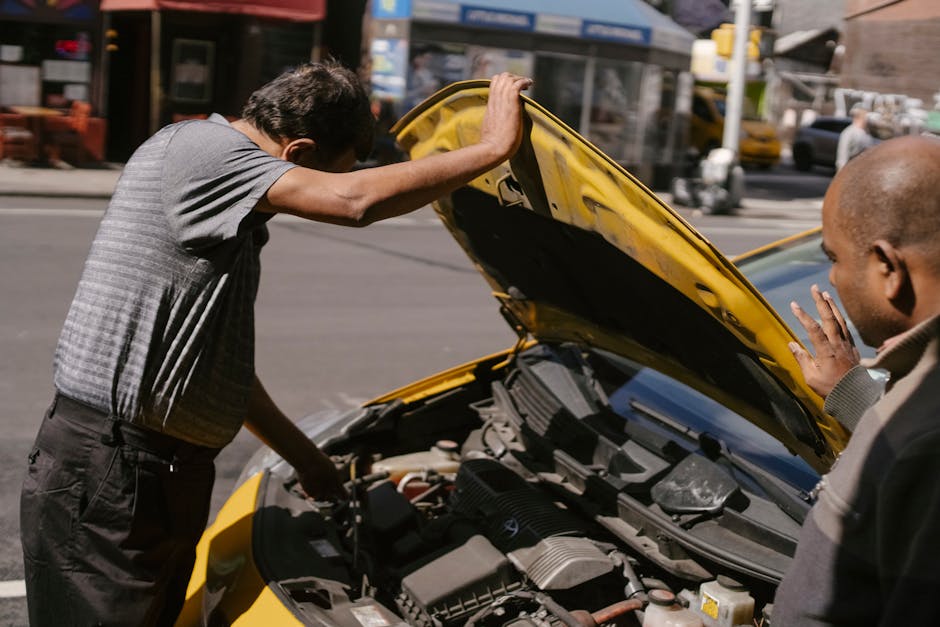Importance of Safety Protocols in Auto Towing
Safety protocols in auto towing are crucial for protecting both the tow truck operators and the motorists on the road. Following safety procedures helps to prevent accidents and injuries during towing operations. These protocols include proper equipment inspection before each job, using visible signage to alert other drivers, and securely attaching vehicles to the tow truck to avoid any mishaps. Adhering to safety guidelines ensures a smooth and secure towing process for everyone involved.

Regulations and Guidelines for Auto Towing Companies
Auto towing companies must adhere to strict regulations and guidelines to ensure the safety of both their employees and the vehicles they tow. Here are some important points to know about the regulations and guidelines for auto towing companies:
- Towing companies are required to have proper licensing and insurance to operate legally.
- Towing vehicles must meet specific safety requirements to prevent accidents during towing.
- Towing companies should follow proper procedures and protocols to secure vehicles safely and prevent damage during transportation.
- Regulations also dictate how towing companies handle abandoned vehicles or vehicles involved in accidents.
- Auto towing companies must comply with state and local laws regarding towing fees and billing practices.
Safety Equipment Required for Towing Operations
Towing operations require specific safety equipment to ensure the safety of everyone involved. Here are some essential safety items needed for towing:
- Reflective vests to make sure tow operators are easily visible on the roadside.
- Emergency lights and cones to warn other drivers of the towing process.
- Properly rated tow straps and chains to secure the vehicle being towed.
- Wheel chocks to prevent the towed vehicle from rolling.
- Safety triangles to alert other drivers to the presence of a stopped or slow-moving tow truck.
These safety tools are crucial for a successful and secure towing operation.
Training and Certification for Towing Personnel
In the towing industry, it’s crucial for towing personnel to undergo proper training and certification to ensure they handle vehicles safely and efficiently. Training programs teach them how to operate towing equipment, secure vehicles, and follow safety protocols on the road. This certification assures customers that they are entrusting their vehicles to knowledgeable and skilled professionals. Training and certification are essential aspects of the towing industry to maintain high standards and ensure the safety of both the personnel and the vehicles being towed.
Roadside Assistance Procedures
Roadside assistance procedures cover a range of services a towing company can provide in case of car trouble. These services typically include tire changes, jump-starting a vehicle, fuel delivery, lockout assistance, and towing to a nearby repair shop if necessary. It’s crucial to contact your roadside assistance provider promptly when you experience difficulties on the road to ensure timely help.
Handling Emergency Situations During Towing
When faced with emergencies during towing, it’s crucial to stay calm and focused. Here are some tips to handle such situations effectively:
- Pull Over Safely: If you encounter an issue while towing, try to safely pull over to the side of the road.
- Use Hazard Lights: Turn on your hazard lights to alert other drivers of your situation.
- Assess the Problem: Evaluate the issue to determine if you can address it or if you need professional assistance.
- Call for Help: If needed, contact your roadside assistance provider or a towing service for help.
- Stay Safe: Ensure your safety by staying in your vehicle or standing a safe distance away from traffic.
Preventing Accidents and Injuries
When it comes to preventing accidents and injuries during auto towing and roadside assistance, safety protocols play a crucial role. Here are some key points to keep in mind:
- Always wear reflective gear to make yourself visible to other drivers.
- Make sure to secure the vehicle properly before towing it to prevent it from shifting or falling off.
- Communicate clearly with your team members to avoid misunderstandings that could lead to accidents.
- Prioritize proper training for all personnel involved in towing and roadside assistance to ensure they are well-equipped to handle any situation safely.
Communication Protocols Between Towing Teams and Clients
When you call for a tow or roadside assistance, clear communication between you and the towing team is essential. Be sure to provide precise details about your location, the type of vehicle you have, and the issue you’re facing. Confirm the estimated arrival time and the services the towing team will provide. Ask for identification of the tow team when they arrive for your safety. Keep the communication lines open for a smooth towing experience.
Compliance with Local and State Laws
Local and state laws mandate that towing companies must adhere to specific safety regulations. These regulations include the use of licensed and insured towing vehicles, proper training for the tow truck operators, and compliance with speed limits and traffic laws while towing. Failure to follow these laws can result in fines or penalties for both the towing company and the driver.
Continuous Improvement and Updates in Safety Protocols
Safety protocols in auto towing and roadside assistance are always being updated to ensure the highest level of safety for both drivers and operators. Continuous improvement is vital in this field to adapt to changing road conditions, vehicle technology, and regulations. Regular updates in safety protocols help in enhancing the effectiveness of response to emergencies and minimizing risks on the road. By staying current with safety measures, towing companies can provide better service and peace of mind to those in need of assistance.

